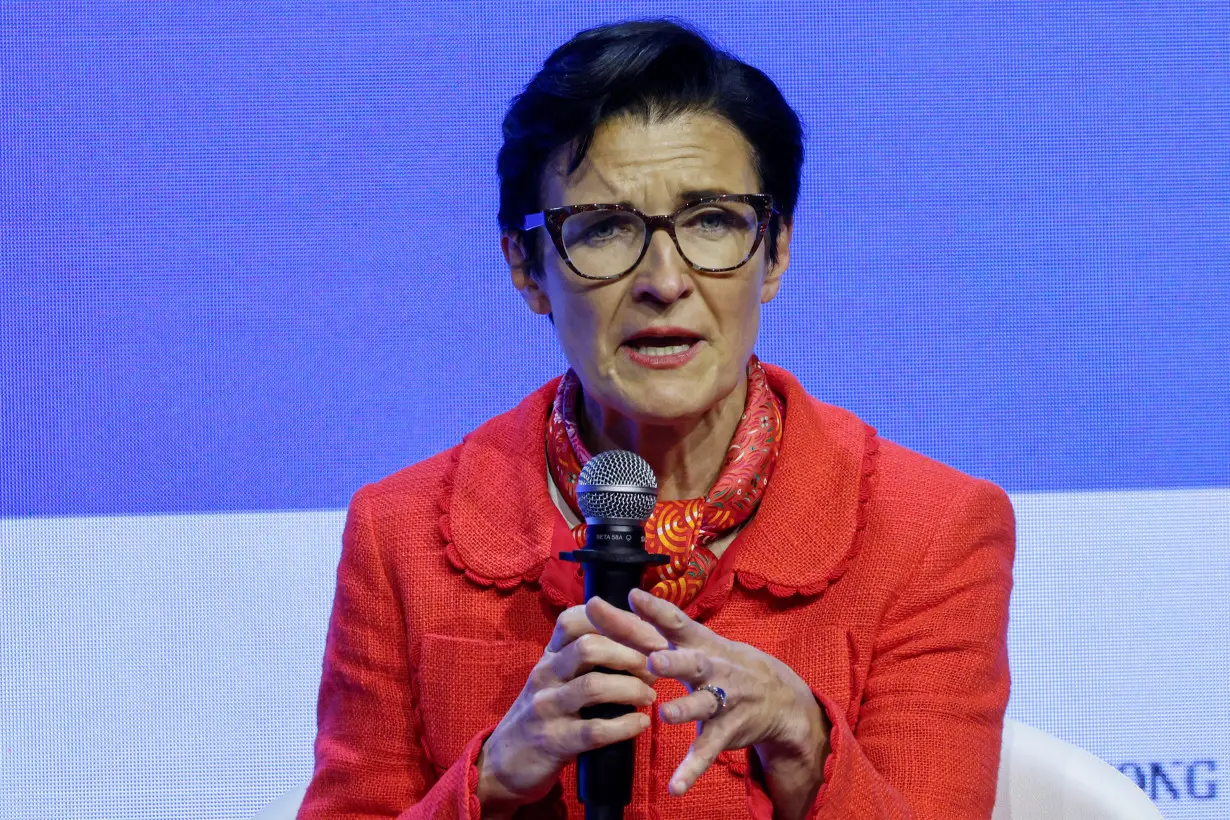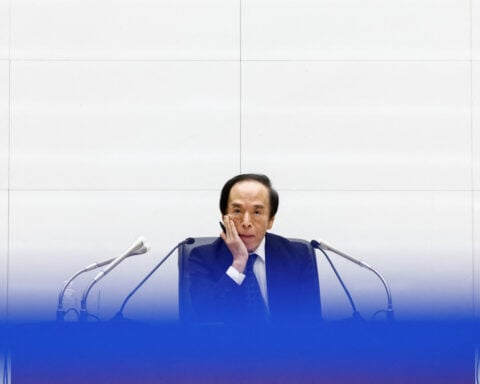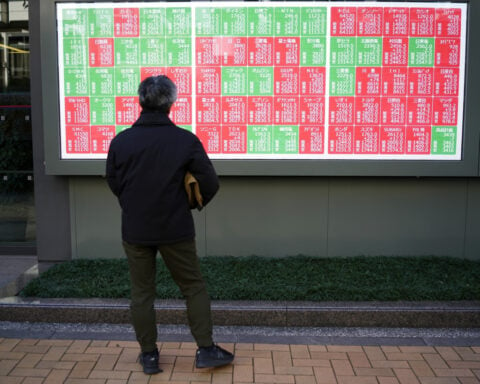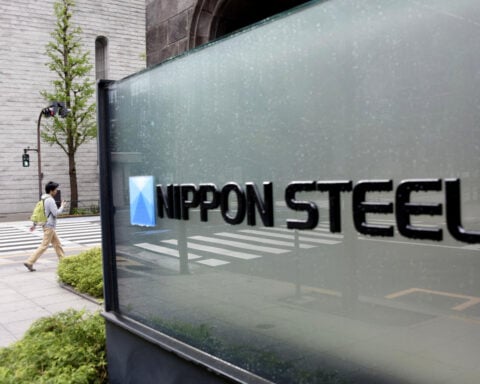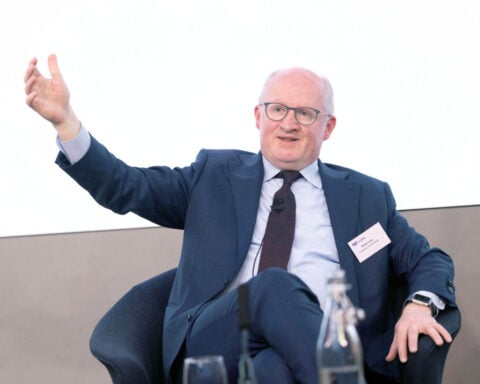(Reuters) - Geopolitical tensions and macroeconomic shocks are spurring businesses and governments into reconfiguring their supply chains, and the increased focus on diversification is leading to "clear benefits", Citigroup CEO Jane Fraser said on Thursday.
Since the COVID-19 pandemic and Russia's invasion of Ukraine shattered global supply chains, a debate has raged over how integrated the global economy will be in the future.
The conflict in the Middle East and the United States' tensions with Beijing have also prompted calls to limit reliance on those regions.
Some businesses are responding by "nearshoring" - the trend of locating manufacturing capacity in Mexico, closer to the U.S. market - to keep supply chains more stable. Others are shifting investment away from China to other developing markets like India, Vietnam and Malaysia.
"For the last several decades, there was a strong emphasis on sourcing and moving manufactured goods as efficiently as possible, to cut costs," Fraser said in her address at the Asia Pacific Economic Cooperation (APEC) CEO Summit in San Francisco.
"But the geopolitical and macroeconomic shocks of late have upended this approach, and we’re now reaching a critical tipping point."
But she warned against calling time on globalization, saying, "we are far from the end of" it.
"Resilience doesn’t mean retreating to our corners," the CEO of the most globalized U.S. bank said. Disruptions to the "old system" signal globalization is changing and would lead to more trade relationships and diversified supply chains.
Fraser also hailed free trade agreements like the Regional Comprehensive Economic Partnership and the Comprehensive and Progressive Agreement for Trans-Pacific Partnership, saying such regional frameworks could pave the way for cross-border collaboration.
Fraser has been at the helm of Citigroup - the third largest U.S. bank by assets, with clients across nearly 160 countries - since March 2021.
She has sought to streamline the Wall Street giant by narrowing its focus, bringing its profitability more in line with peers by cutting down on its international footprint.
(Reporting by Niket Nishant and Manya Saini in Bengaluru; Editing by Pooja Desai)

 Stock market today: Asian stocks mixed ahead of US inflation data
Stock market today: Asian stocks mixed ahead of US inflation data
 TikTok seeks to reassure U.S. employees ahead of Jan. 19 ban deadline
TikTok seeks to reassure U.S. employees ahead of Jan. 19 ban deadline
 US won't seek charges in unarmed Black motorist Ronald Greene's fatal 2019 arrest
US won't seek charges in unarmed Black motorist Ronald Greene's fatal 2019 arrest
 Euro zone households could increase consumption, ECB chief economist says
Euro zone households could increase consumption, ECB chief economist says
 Foreigners sold South Korean equities last month by most since early 2020
Foreigners sold South Korean equities last month by most since early 2020
 As fires ravage Los Angeles, Tiger Woods isn't sure what will happen with Riviera tournament
As fires ravage Los Angeles, Tiger Woods isn't sure what will happen with Riviera tournament
 Antetokounmpo gets 50th career triple-double as Bucks win 130-115 to end Kings' 7-game win streak
Antetokounmpo gets 50th career triple-double as Bucks win 130-115 to end Kings' 7-game win streak
 Zheng loses to No 97 Siegemund, Osaka rallies to advance at the Australian Open
Zheng loses to No 97 Siegemund, Osaka rallies to advance at the Australian Open
